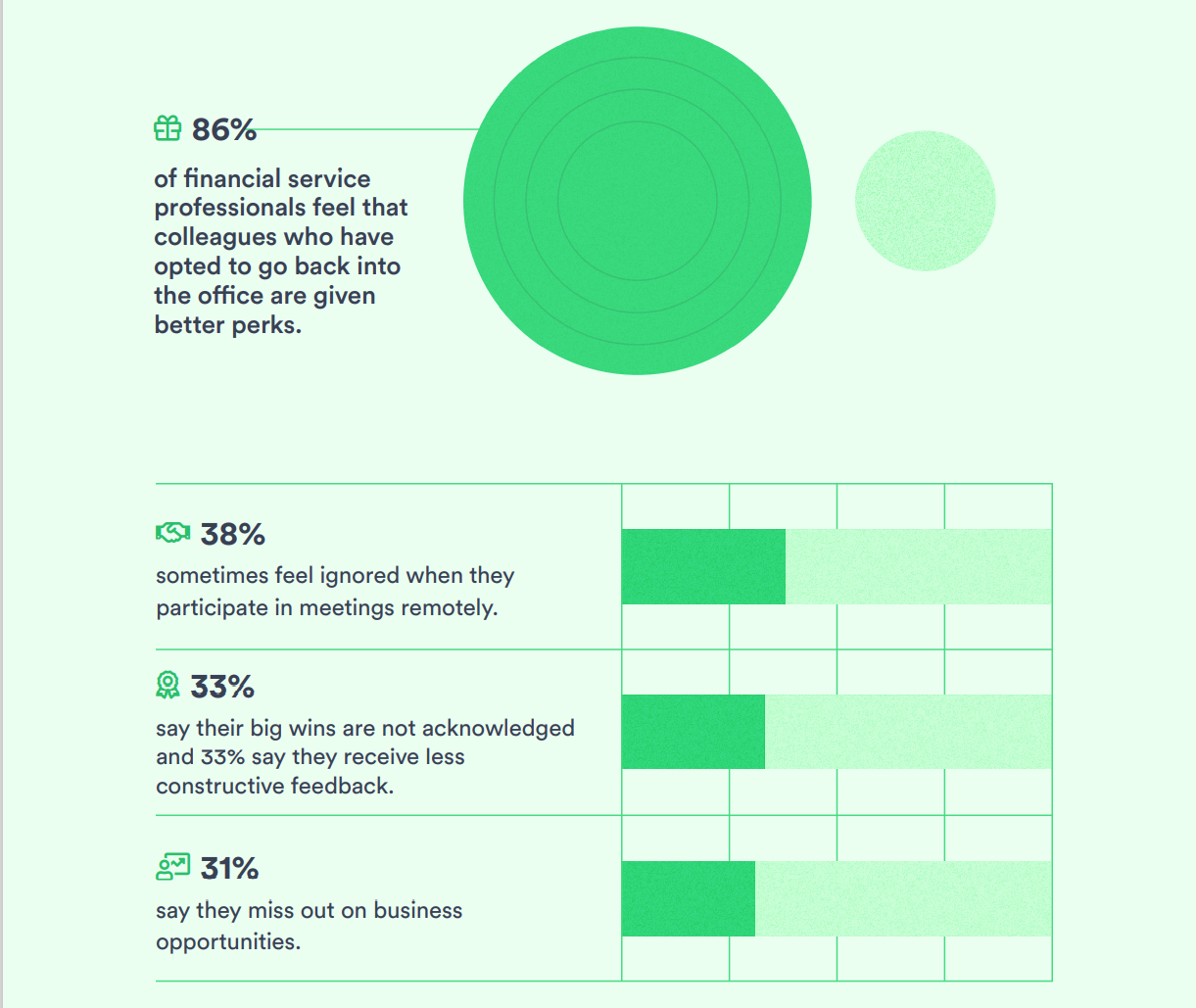Why it matters: One of the effects of the pandemic is that many people now work from home or use a hybrid home/office system. According to the latest in a long line of surveys showing the same result, the vast majority of employees want to keep it this way—and would be willing to give up pay and perks in exchange.

‘The Future of Work in Financial Services: Remote or In-Office?’ is a collaboration between market researcher Atomik Research and enterprise video platform maker Vidyard. It uses data gathered from 503 financial service professionals working in sales, marketing, human resources, and client services, focusing on their work-from-home opinions.
The survey reveals that a massive 96% of people would be willing to give up a percentage of their salary to work from home permanently. And not just a small amount: 30% would give up half or more, while 2 in 5 would take between 25% and 50% less pay to keep working from home indefinitely.
Illustrating just how desperate some people are to stay out of the office, 97% of respondents said they would be willing to give up one or more benefits to work from home permanently. Of that group, 38% said they would sacrifice their health insurance, another 38% said they would give up all their paid time off, and 10% were willing to lose both perks in exchange for permanent WFH or hybrid work.

The reason why many people want to keep working from home
Why do so many employees not want to return to the office? The most common reason in this survey (40%) is fear that their productivity would decline. That’s followed by concerns their dog would miss them—a more valid reason, in this writer’s opinion—followed by worries of job satisfaction plummeting (33%) and increased stress (30%).
While plenty of CEOs argue that in-office work is essential for getting the most from staff, 88% of financial service professionals said they experienced more success while working from home, and 82% believe productivity at their organization has increased since WFH schemes began at the start of the pandemic. Almost half say limited distractions and no office politics have helped them do more work in a shorter space of time.
But there are some negatives to working from home compared to the offices. Most (86%) respondents feel employees who choose to work in the office receive better perks than remote staff, who often feel ignored and unacknowledged. There were also complaints of receiving less feedback and missing out on business opportunities.
Several tech giants encouraged employees to work from home at the start of the Covid outbreak, and most staff don’t want to go back, but many executives feel they should—Microsoft even published a study that claims WFH threatens productivity and innovation. However, with the emergence of the Omicron Covid variant, companies have been delaying their return-to-the-office dates.
Masthead credit: Telecommuting by Creative Lab
https://www.techspot.com/news/93081-most-workers-willing-take-pay-cuts-lose-benefits.html
